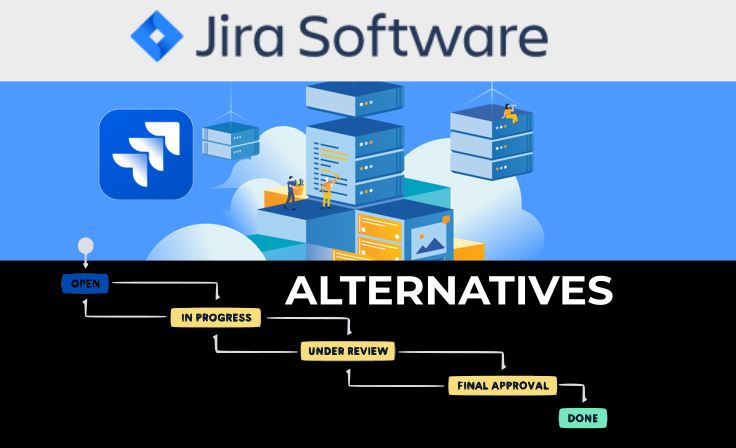Identifying the Pain Point: API Management Complexity
As applications scale and the number of microservices increases, managing APIs can become a daunting task. Developers often face issues related to security, rate limiting, monitoring, and orchestration. These challenges can lead to performance bottlenecks, security vulnerabilities, and increased operational overhead. The pressing need for a robust solution is where API gateways come into play. They streamline API management, offering developers the tools to efficiently handle the complexities of modern application architectures.
Understanding API Gateways
API gateways act as intermediaries between clients and backend services, providing a single entry point for managing requests and responses. They play several critical roles, including:
Traffic Management
API gateways can control traffic to backend services, allowing you to implement rate limiting, request throttling, and load balancing. This is crucial for maintaining the performance and availability of your services.
Security Enforcement
Security features such as authentication, authorization, and encryption are integral to API gateways. They help in mitigating threats like DDoS attacks and ensure that only legitimate requests reach your backend services.
Analytics and Monitoring
Most API gateways come with built-in analytics tools that allow you to monitor API usage, error rates, and performance metrics. This data is essential for optimizing your services and ensuring a smooth user experience.
Top Open Source API Gateways for Your Backend
Numerous open-source API gateways are available, each offering unique features tailored to solve specific challenges. Here, we explore some of the top contenders, their implementations, and practical use cases.
Kong Gateway
Kong is a widely adopted open-source API gateway that provides a scalable platform for managing APIs. With its support for plugins, Kong can be easily extended to meet specific needs.
Current Implementation
As of version 3.0, Kong significantly enhanced its performance and features, including support for gRPC and improved API analytics. You can set up Kong using Docker with the following configuration:
docker run -d --name kong-gateway
-e "KONG_DATABASE=off"
-e "KONG_PROXY_LISTEN=0.0.0.0:8000"
-e "KONG_ADMIN_LISTEN=0.0.0.0:8001"
-p 8000:8000 -p 8001:8001
kong:3.0Real-World Example
Netflix uses Kong to manage its API traffic, allowing them to handle millions of requests per second. According to their metrics, Kong has helped reduce latency by up to 30%, making their services more responsive and user-friendly.
Apache APISIX
Apache APISIX is an emerging open-source API gateway that emphasizes high performance and extensibility. With its dynamic routing capabilities and rich plugin ecosystem, it’s an excellent choice for modern microservice architectures.
Current Implementation
In version 2.10, APISIX introduced native support for OpenTelemetry, allowing developers to integrate distributed tracing easily. You can set it up using the following Docker command:
docker run -d --name apisix
-p 9080:9080 -p 9180:9180
apache/apisix:2.10Efficiency Trick
One little-known feature is the ability to use Lua scripts for custom logic in your routes. This allows you to implement complex behaviors without modifying core code. For example, you can write a Lua script to dynamically adjust route parameters based on incoming request headers.
Traefik
Traefik is a cloud-native API gateway that integrates seamlessly with container orchestration platforms like Kubernetes and Docker Swarm. Its automatic service discovery and dynamic configuration make it an attractive option for modern DevOps practices.
Current Implementation
Version 2.5 introduced support for advanced rate limiting and improved observability features. The following configuration sets up Traefik with Docker:
version: '3.8'
services:
reverse-proxy:
image: traefik:v2.5
command:
- "--api.insecure=true"
- "--providers.docker=true"
- "--entrypoints.web.address=:80"
ports:
- "80:80"
- "8080:8080"
volumes:
- "/var/run/docker.sock:/var/run/docker.sock"
Real-World Example
eBay uses Traefik to manage its microservices and found that it reduced deployment times by 40%, allowing for more frequent updates and improved service reliability.
Express Gateway
Express Gateway is a developer-friendly API gateway built on Node.js, making it a great choice for JavaScript developers. It allows for easy integration with existing Express applications.
Current Implementation
Version 3.0 introduced middleware support and enhanced plugin capabilities. You can start Express Gateway with the following command:
npx express-gateway startEfficiency Trick
One effective way to enhance security is by implementing JWT (JSON Web Tokens) for authentication. Using Express Gateway, you can easily set this up with minimal configuration:
http:
- action:
- jwt: {}
This method ensures that only authenticated users can access your APIs, significantly reducing potential security threats.
Industry Changes Impacting API Gateway Solutions
The landscape of API management is evolving rapidly, especially with ongoing developments in cloud-native technologies and microservices. As of late 2023, several trends are emerging that can influence your choice of API gateway:
Increased Demand for Observability
With the rise of microservices, the need for observability in API management is more crucial than ever. Gateways now integrate more robustly with tracing and monitoring tools to provide insights into API performance. This trend emphasizes the importance of selecting a gateway that supports observability frameworks like OpenTelemetry.
Growth of Serverless Architectures
The adoption of serverless computing is reshaping how APIs are managed. Many API gateways are evolving to support serverless functions natively, allowing developers to deploy functions as services easily. This capability enables organizations to focus on business logic rather than infrastructure management.
Enhanced Security Features
As cyber threats become more sophisticated, API gateways are incorporating advanced security features such as AI-driven anomaly detection, automated threat response, and enhanced encryption protocols. Keeping abreast of these developments is critical for maintaining strong security postures.
Conclusion: Making the Right Choice
Selecting the right API gateway is crucial for your backend architecture. Each of the solutions discussed—Kong, Apache APISIX, Traefik, and Express Gateway—offers unique advantages and features tailored to specific needs. Consider your application’s requirements, including performance, security, and ease of integration, when making your choice. By leveraging these open-source gateways, you can streamline your API management, enhance security, and ultimately deliver a better user experience.



